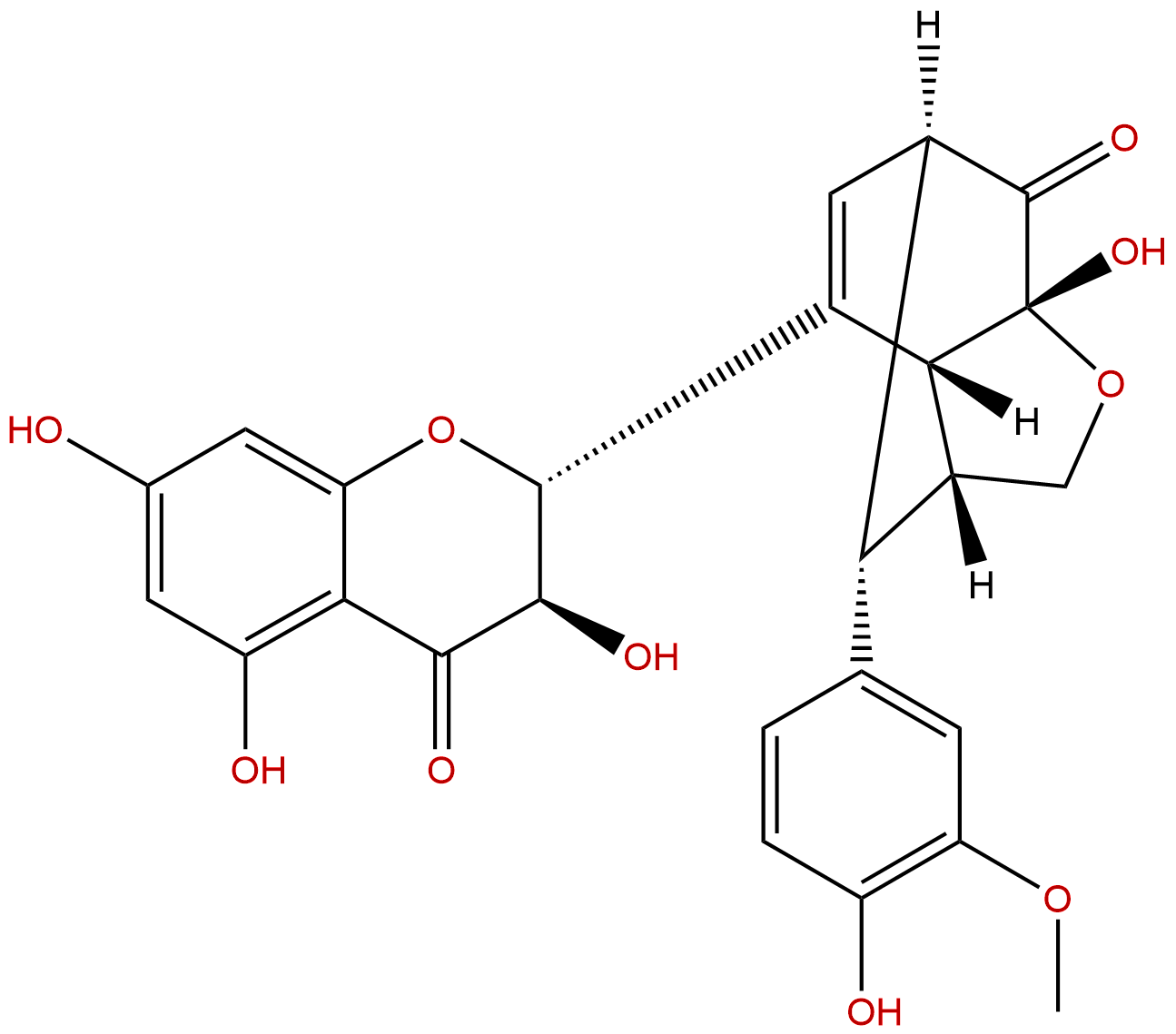
SilydianinCAS No.:29782-68-1
|
||||||||||
 |
|
|
||||||||

| Catalogue No.: | BP1307 |
| Formula: | C25H22O10 |
| Mol Weight: | 482.441 |
Product name: Silydianin
Synonym name: Silidianin
Catalogue No.: BP1307
Cas No.: 29782-68-1
Formula: C25H22O10
Mol Weight: 482.441
Botanical Source: Silybum mariamum (L.)Gaertrn.
Physical Description:
Type of Compound: Flavonoids
Purity: 95%~99%
Analysis Method: HPLC-DAD or/and HPLC-ELSD
Identification Method: Mass, NMR
Packing: Brown vial or HDPE plastic bottle
Storage: Store in a well closed container, protected from air and light. Put into refrigerate or freeze for long term storage.
Whenever possible, you should prepare and use solutions on the same day. However, if you need to make up stock solutions in advance, we recommend that you store the solution as aliquots in tightly sealed vials at -20℃. Generally, these will be useable for up to two weeks.
The product could be supplied from milligrams to grams
Inquire for bulk scale.
Description:
Silydianin, an active constituent of Silybium marianum, has inhibitory effect on on the in vitro production and release of oxidative products. Silydianin has possible antiinflammatory activity, which regulates caspase-3 activation, affects cell membranes and acts as a free radical scavenger.
References:
Phytother Res. 2006 Feb;20(2):115-9.
An in vitro study of the protective effect of the flavonoid silydianin against reactive oxygen species.
The inhibitory effect of Silydianin, an active constituent of Silybium marianum, on the in vitro production and release of oxidative products has been examined. Polymorphonuclear neutrophils (PMNs) play a primary role in the initiation and propagation of inflammatory responses. Their apoptosis is a major mechanism associated with the resolution of inflammatory reactions. Neutrophils were assessed for caspase-3 activity, the rst step in the execution phase of apoptosis.
METHODS AND RESULTS:
When cells were cultured with 100 microM Silydianin for 24 h, caspase-3 was activated. Induction of apoptosis by Silydianin was accompanied by a decrease in luminol-enhanced chemiluminescence as well as superoxide radical (O2*-) release in freshly isolated cells and lipid peroxidation in mouse spleen microsomes. No significant effect of Silydianin on PMN hydrogen peroxide production evaluated by a flow cytometric dichlorofluorescin oxidation assay was found.
CONCLUSIONS:
Such results indicate a possible antiinflammatory activity for Silydianin, which regulates caspase-3 activation, affects cell membranes and acts as a free radical scavenger.